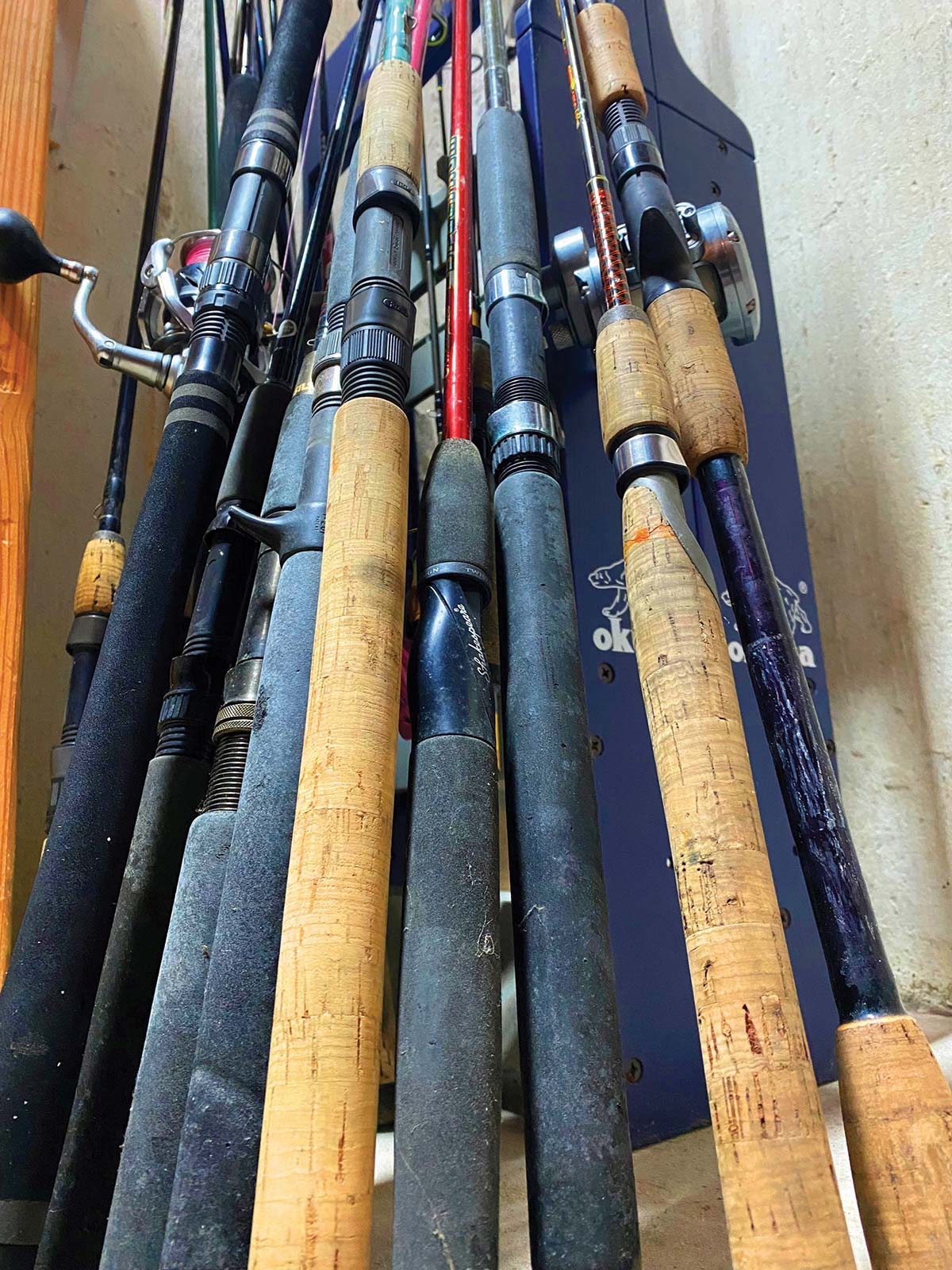
Tips for keeping your rods, reels and tackle like new for the next season.
To think, you treat yourself to a brand new high-end rod and reel combo that becomes a favorite during fluke season. Then you purchase another one or two to manage blackfish and striped bass season. You’re proud of the combos that probably set you back $1,200 to $1,500, not including terminal gear that set you back at least another $300. You treat the gear like a kid’s new glove for the first or perhaps two years. Then like any new novelty, the excitement wears off. Before long, those gems of rods and reels end up in some damp, dusty corner of the basement with dried-up saltwater corroding and destroying those bearings and most untreated metals, internal and external. By the third or fourth season, you’re into a striper of a lifetime only to have the drag on the reel freeze up, pop goes the line, and you are waving ‘goodbye’ to that cow bass you waited for all your life. It has me scratching my head, thinking why any person would drop a good buck for a rod and reel combo just to let it destroy itself during the off-season.
I hate to be the bearer of bad tidings, but such practice will see those reel’s visiting the tackle hospital in short order, usually with a costly repair bill that was very much avoidable with proper care during the off-season. Unfortunately, that quick spray from the garden hose will not cut it, regardless of what the manufacturer might claim. Let’s look at a few simple tasks that will keep that tackle looking and performing like brand new for several seasons.
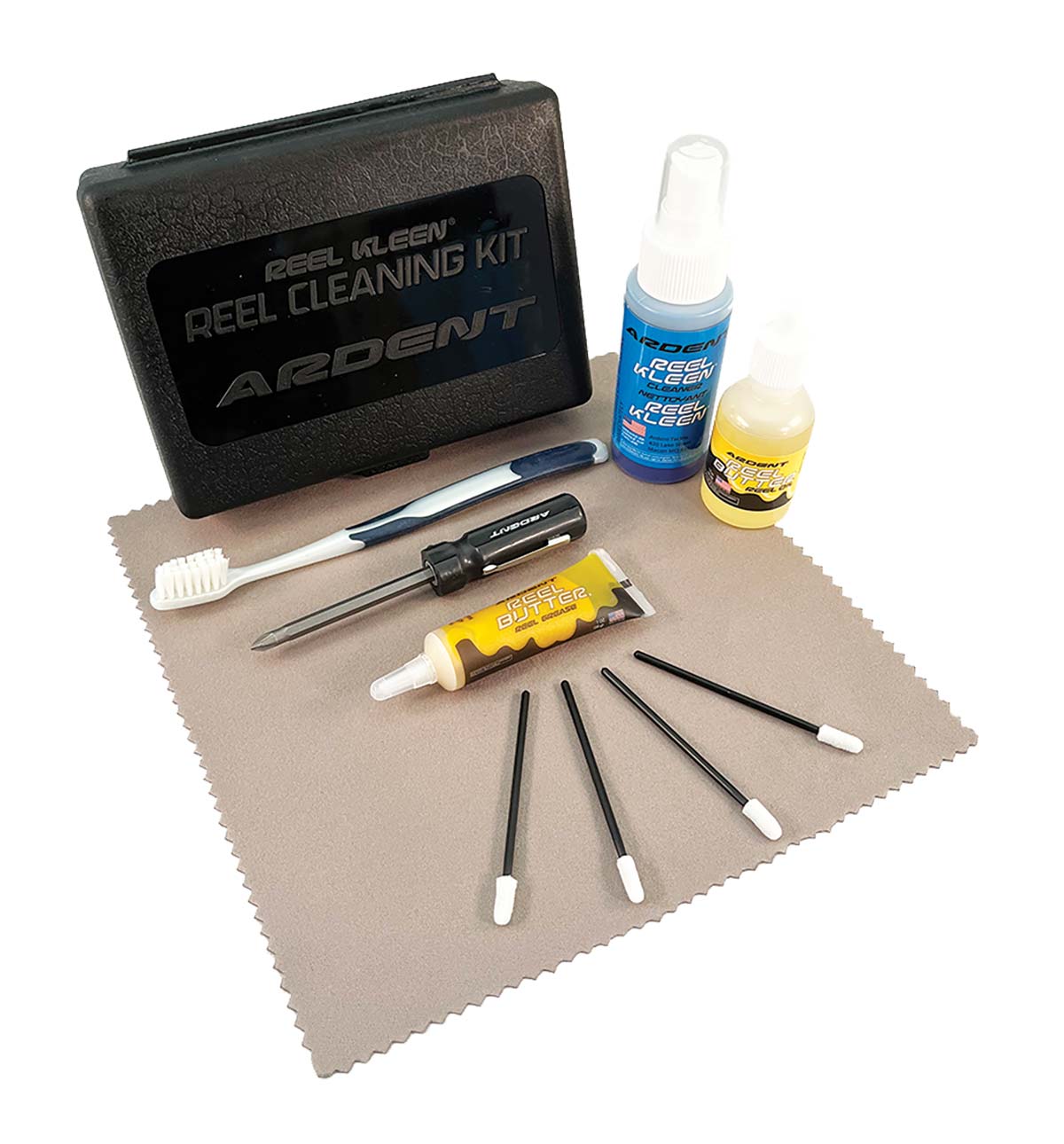
The Salt Dilemma
Saltwater is the demise of all terminal tackle unattended for a short time. Regardless of what a reel manufacturer may claim, salt vapors find their way inside the main casing attacking and drying up the grease that keeps those gears and bearing moving smoothly. However, once the gear grease dries up, it attacks the gears by etching and corroding the metal beyond repair, often resulting in a costly repair of replacing the damaged component. The worst nightmare is in the height of using a reel when suddenly it freezes up while fighting a good fish.
As for rods, those that suffer saltwater residue that sits on the eyes throughout the winter become etched, affecting casts and causing line fray, which often requires replacement. In addition, soft and hard baits, jigs, and all terminal tackle put back into the tackle bag without at least a rinsing of freshwater and thoroughly dried will certainly rust, corrode and freeze up. Thankfully, with proper cleaning and simple repairs, fishing tackle can work like new and be ready to rock and roll come spring.
The Yearly Doctor’s Visit
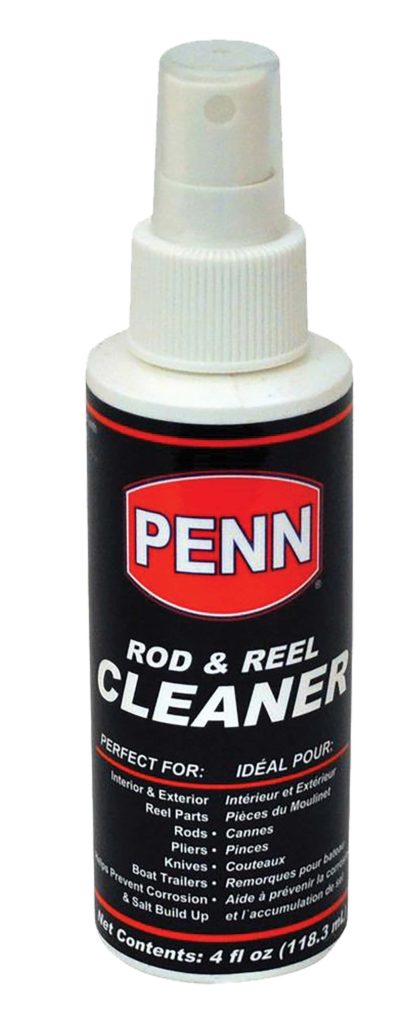
At least once a year, quality saltwater reels should be taken to a tackle professional for a complete tune-up. This will help ensure you get many years of quality performance from your reels. It is also an excellent way to identify damaged parts and prevent more severe problems. Should you decide to do reel repairs yourself, clean off any dirt, grime, fish scales, and slime on the surface before you dig into the gear casing of the reel so that surface soil won’t work its way into the gears. When applied to a reel, lubricant, and grease, two types of lubricants are required. Gears get grease, while oil is applied to all moving parts, including reel handles, joints, and entry points. Remember to add a drop or two to the reel handles knob joints.
To make the task at hand easier, there are several great reel cleaning and maintenance kits out there; however, the Ardent Reel Kleen Cleaning Kit-Saltwater has everything you need to get your favorite reel back in “like new” condition, including Reel Butter Oil and Grease, Reel Clean, a multi-tool screwdriver, cleaning swabs, brush and a silicone treated towel. It also gives directions so even a novice can service their reels. Penn also makes a small grease and oil kit for proper reel maintenance. A common practice for many anglers is to store reels in a soft zippered case, which is excellent for protecting reels against dings and scratches. However, never store a wet reel in its case since trapped moisture will have no way to escape and can lead to corrosion. A good idea is to leave the case open so that moisture, if present, can dissipate.
Inspect For Unseen Damage
Fishing rods are forgotten about during the winter season. When it comes to rods, two main factors need attention. First, check the guides to ensure no chips or cracks could cut your line. Many anglers like swabbing the guides with a cotton swab or a cotton ball which will fray if it hits a problem area on the guide. Secondly, rods and cork handles come clean quickly, although cork handles might take a little more work. Penn carries a rod and reel cleaner sold in a twelve-ounce spray bottle that removes dirt and grime from all rod and reel surfaces. It also helps prevent corrosion, removes salt build-up, and works very well on pliers and knives. Mr. Clean Magic Erasers also do an incredible job cleaning off the cork grips and handles after a long fishing season. Magic erasers also play a huge role in many processes with lures, tackle boxes, and much more. Just wet them and scrub liberally on most products to get back to a showroom finish. They also do an impeccable job of removing the rust that sometimes accumulates around the lure hook holder on the bottom section of the rod.
After the rods have been overhauled, store the loose rods in a 5-gallon bucket butt first or purchase a rod rack. I always keep the casing that the rod was shipped with for winter storage. Slide the rod back into the casing, and it will stay dust free. Apply these applications twice a year, preferably after some rugged usage and then for the winter hibernation at the end of the season, and your combos will last for many years.
Check For Nicks And Frays On The Lines
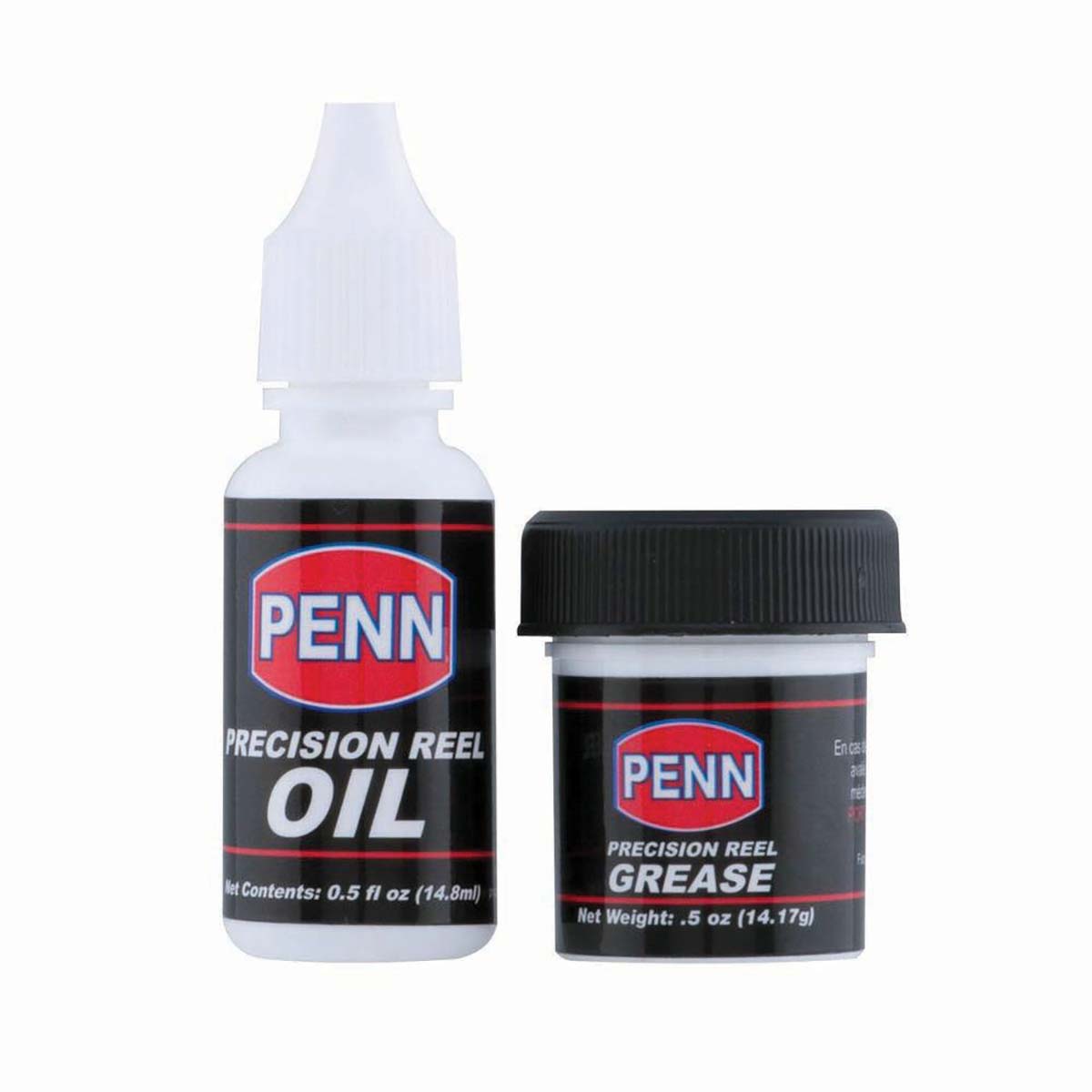
Mono and even braid line neglect is a common cause of angler misery. A line that looks faded and old probably is and must be replaced. Additionally, if it shows too much memory (coils) when you pull an arm’s length from the spool, you are headed for trouble. If you doubt its condition, replace it with a new fresh line.
Relevant to performance, reels cannot perform well with either too little or too much line. If the line does not reach within one-eighth inch of the rim, you may need to replace the line. The winter preparation period is also a good time to decide whether to try a different line this season or experiment with several different lines.
The proliferation of fishing lines in recent years offers a nearly ideal solution to every technique and fishing situation. Do a little research and make an intelligent change. Most lines benefit from a generous squirt of a quality line treatment immediately after you’ve spooled your reel and once again shortly before you take to the water. Check the line’s condition for abrasion, twist, and wear throughout the season. Reels should be stored with the line removed. This is especially important for reels fished in saltwater, as salt can collect and degrade the line. If you have recently changed your line, such that it is fresh, consider wrapping it onto a coffee can or other large object. This is common practice with fly lines but can also be used with monofilament and braid. Take care of this all-important matter if you want to get off to a problem-free start this spring.
The Need For Loving Care
Organize your rigs and lures in a way that makes sense to you. Whether you put all lures of a certain type together or organize them by season or species is your choice. Tackle organization should always be about having what you need when needed. Go through all your tackle bags, boxes, and trays by dumping and spreading all terminal tackle across a large open area and take inventory, which will help with getting reacquainted with the long-forgotten gear of the present.
I keep an ample supply of Plano 3700 boxes on hand to build travel boxes by species and location. It’s also important to inventory tools used while fishing, which include scissors, pliers, clippers, knives, hook removers, and a weight scale. Remember that all tackle boxes and bags must be inspected for damage, rust, and mildew, then cleaned, dried thoroughly, and refilled with revitalized lures and terminal gear. Organize your tackle to make every item accessible and easy to find.
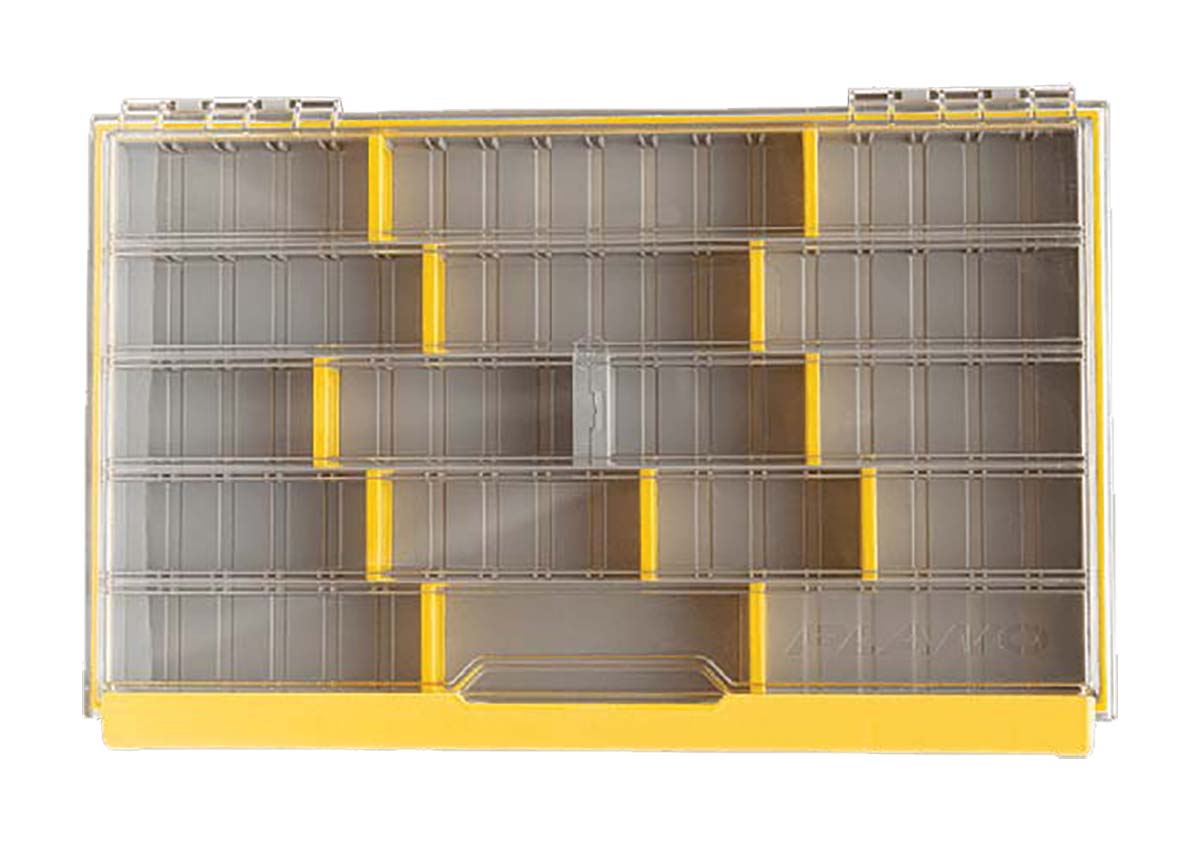
Rid That Rust
When dealing with inventory, it’s a great idea to get up close and personal by giving each item a good look over and dealing with it as necessary. I like to go over each lure and change out or sharpen all hooks. As a general rule, if a hook is bent or a hook point is turned, replace the hook. I like to use different makes, such as VMC, Mustad, and Gamakatsu hooks, based on the application for replacements.
Lures that have rust spread onto the bodies can be easily cleaned by one of those wonderful Mr. Clean Magic Erasers. Determine what items you would like to upgrade and trash those decades-old straight snaps, snap swivels, barrel swivels, and three-way swivels and replace them with Spro Power Swivels. Make sure to replace the batteries in electronic scales and other battery-dependent objects, seeing that they are all in operating order. Check landing nets, grippers, and gaffs before the start of the season to avoid any unwanted issues.
While the winter months leave me wishing I were fishing, taking care of these things will ensure that when the nice weather does return, I’ll be ready. This also keeps fishing at the forefront of my activities year-round. Organizing your tackle will help you save time on the water and be more successful with your fishing endeavors. Organized anglers catch more fish.



